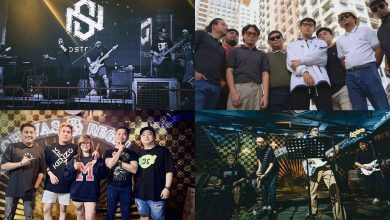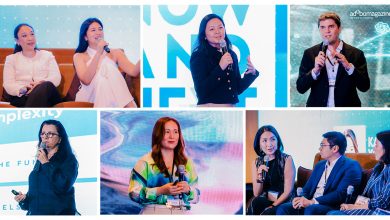Despite the advertising industry’s frequent platitudes about valuing diversity and striving to offer equal opportunities, for many female creatives the so-called glass ceiling remains very real.
At Spikes Asia in Singapore in September, Merlee Jayme, ‘Chairmom’ and Chief Creative Officer of Dentsu Jayme Syfu, shared her insights on breaking through the glass ceiling. Having been in the industry for 30 years, and with a multi-awarded and blessed, accomplished career, she recounted both her past and present experiences of discrimination and being stereotyped as “the Asian Woman”.
Jayme also pointed out that the creative industry suffered tremendously from gender imbalance. This year alone, there were only eight women featured in The Drum’s Big Won ranking of the world’s top 100 chief creative directors, and only two of them were Asian.
The proportion of women progressing into creative leadership was a real issue in the advertising industry. She reiterated that this number had to improve over the coming years because great diversity in creative leadership lead to better output.
There were two kinds of glass ceilings, says Jayme. The first one, she says, is the individual barriers established by the corporate world for years, including culture, practices, biases, pay gaps, and more. This was created by the world.
The second kind consists of “invisible barriers we’ve created for ourselves based on culture, families, environment and how we were treated growing up, what we’ve learned through the years” and other factors.
“Usually, these result in lack of confidence, submissive behavior, or an inferiority complex,” she added.
Jayme does not let any such doubts hold her back. In response to being given stereotypical “female” assignments as a copywriter, she made a point of asking to work on briefs for things like roof sealants and tricycle lubricants. “I had to do real research on these,” she said. “It wasn’t easy, but I had to get out of my comfort zone and get into my courage zone.” This gave her supreme confidence in her abilities.
When faced with sexual harassment, she simply fought at all costs. She experienced this several times in her career. Her most unforgettable encounter hit her agency hard. The head client of her biggest business made inappropriate advances towards her in a lift. “With my partners’ help, we had to let it go. Losing the revenue definitely hit us hard. But we’d rather suffer and pitch for 10 more accounts than continue working for that pervert,” she shared.
Being overlooked for promotions is another problem that women have to contend with. Jayme gave an example in which she made a strong case and showed the president of a company she was in, and why she should be moved up to ECD. It worked, serving as a reminder that if a person wants something, they have to go and get it, not simply hope that it comes their way.
As a mother of four, Jayme is an improbable agency leader. She said a combination of disciplines, practicality, and family support made it possible to maintain her career. In simple terms, “I mixed my two worlds” of work and family, she said. That meant moving between them as needed while ensuring that she did not neglect either. Two of her daughters have followed in her footsteps and now work as creatives in the agency world, suggesting that her approach served as an inspiration.
Jayme sees insecurity as the ceiling that’s made of ‘tempered’ glass. Asian women, she said, tend to believe “that we are always a support, never the lead”. In order to succeed, she shares that one must first address the inner voice that sows doubt on their abilities.
Jayme also encourages people not to compromise one’s feminine nature.
“You don’t have to be manly to survive in a man’s world.” Would-be female leaders must also be ambitious and not be afraid to raise their voices; use their intuition and ability to read body language to their advantage; face challenges directly instead of taking the back seat; and be sensitive and supportive to the situations of female colleagues, particularly in areas such as motherhood.
“Some of us can become a little selfish and turn a blind eye to other women’s problems,” she said. “That’s not OK. Life is hard as it is. Let’s push each other and smash the glass for one another.”
adobo magazine, the Word on Creativity, is an official media partner of Spikes Asia 2019 Festival of Creativity.








